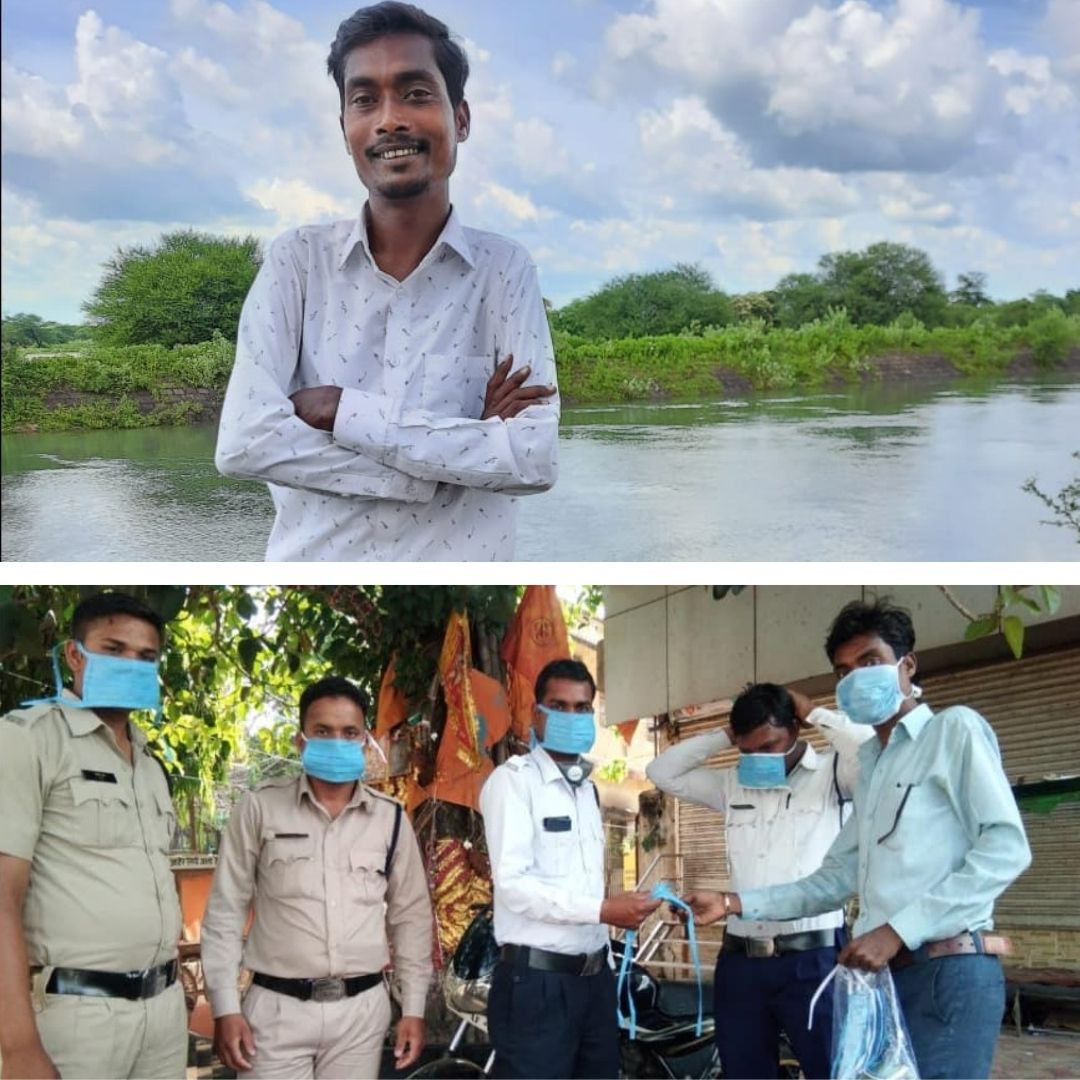
Image Credits: From The Source
From Struggling To Earn His Daily Bread To Being Torchbearer For Change, Nomesh Verma's Story Is Inspiration To Many
India, 13 Jan 2022 10:23 AM GMT
Editor : Palak Agrawal |
Palak a journalism graduate believes in simplifying the complicated and writing about the extraordinary lives of ordinary people. She calls herself a " hodophile" or in layman words- a person who loves to travel.
Creatives : Tashafi Nazir
For most people, journalism sounds hectic and chaotic. For her, it's a passion she has been chasing for years. With an extensive media background, Tashafi believes in putting efforts on presenting a simple incident in the most interesting way.
Nomesh was born with sickle cell anemia disorder and was struggling to make a living after his mother's death. A free 'Sightsavers' training programme, that provides livelihood skills to persons with disabilities, helped Nomesh become an electrician. Apart from the technical training, the programme got him connected with several specially-abled people and eventually he got involved with Divyang Kalyan Sangh (DKS). His eagerness to serve the people and his sharpness in understanding issues ensured that he soon became the leader of the organisation.
Nomesh Verma was born with sickle cell anemia (a red blood cell disorder in which there aren't enough healthy red blood cells to carry oxygen throughout your body which in turn causes frequent infections, fatigue, vision problems among other effects) and belonged to a low-income family.
Hailing from Chhattisgarh's Raipur district, he had a rough childhood and his condition remained undetected for the initial years.
He would constantly fall sick as a child and had extremely poor immunity. He was seven years old when he was diagnosed with a genetic disorder. Nomesh's mother would often donate blood for his transfusion to keep her son alive and for his growth, however, he had multiple disabilities, including visual impairment, and would often be physically drained.
When Nomesh was just 14, his mother passed away and his father remarried.
Despite his personal and physical difficulties, Nomesh struggled academically till 9th standard, but later he left his father and began living with his grandmother. He would sell vegetables for a living, but as he grew older his body could not cope with the stress of hard labour.
During this time, a free 'Sightsavers' training programme turned out to be a silver lining in his life. It provided him with training for an electrician. It was a window to a whole new world for him. The programme has been upskilling persons with disabilities to help them earn a dignified living.
Established in 1966, Sightsavers' work in India has enabled thousands of people to lead lives of independence and dignity. The NGO has supported the treatment of millions of people with eye disorders. It has educated, counselled, trained, and rehabilitated visually impaired people and helped extend the reach of eye services to the least served areas of the country.
Serving People With Disabilities
After his successful training, through the programme, Nomesh got in touch with several other persons with disabilities, and he got involved with Divyang Kalyan Sangh (DKS), a Disability People's Organisation in Raipur supported by Sightsavers. His eagerness to serve the people and his sharpness in understanding issues ensured that he soon became the president of DKS.
During the COVID-19 pandemic and subsequent lockdown, Nomesh emerged as a true leader and a guide for many. He assisted the District Social Welfare Department in identifying families in need amidst the pandemic. With the support of other DPO (Disabled People's Organisation) members, Nomesh prepared a list of around 70 families with disabilities and 92 other families, all of whom had been severely affected due to the lockdown. He shared the list with the department and followed up until the identified families received the needed support.
Source Of Motivation
In addition, he became a source of motivation for other DPO members to donate money to buy cloth for preparing masks. He stitched around 350 masks and distributed them among police officers, health workers, and daily wage workers. He distributed food packets to approximately 56 migrant families. He also volunteered and delivered medicines to 20 sickle cell patients amidst the lockdown.
Nomesh and his team identified early childhood care centres as well as primary and middle schools and assessed the status of services available to children with disabilities, including parameters such as accessibility, infrastructure, teaching aids, and attitudes of staff and fellow students.
During the Disability Inclusive Scorecard (DISC) process, some of the state-level officials from the education department took part, realising the problems faced by children with special needs and their parents. As per the government record, from April to December 2019, ramps were introduced in 44,353 primary and higher secondary schools, and accessible toilets were constructed in 32,472 primary and higher secondary schools.
Nomesh is now actively involved in educating people on how to protect themselves from COVID-19 and reduce the chances of transmission. He says that his efforts to help people make him happy.
"If nothing else, this is my small contribution for the people of my country," he says.
Trained by Sightsavers, Nomesh and his team are torchbearers in this change process and in turning the DISC process into a grassroots reality.
 All section
All section














